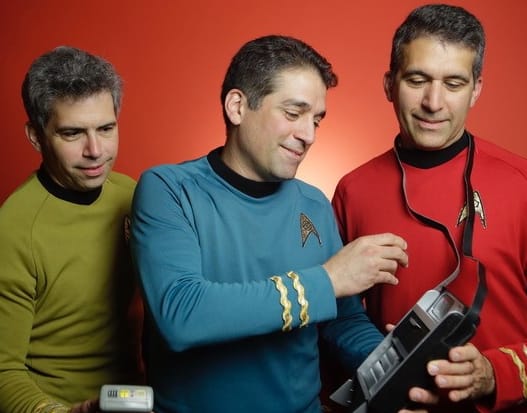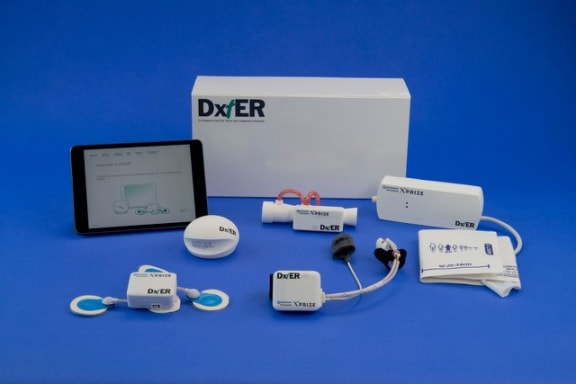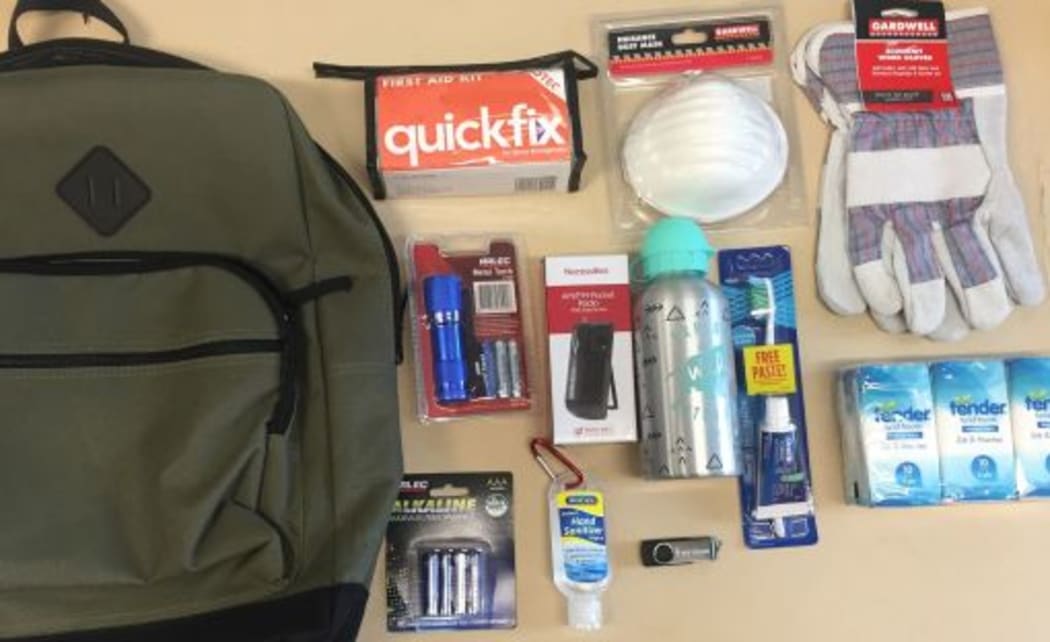This Way Up for Saturday 29 April 2017
This Way Up for Saturday 29 April 2017
A medical diagnosis machine, build your own emergency kit, plug in planes, and can WikiTribune fix the news media?
Doctor in a box: a diagnosis machine

Brothers George, Basil, and Gus Harris of Final Frontier Medical Devices Photo: Photo credit to XPRIZE Foundation

DxtER is a Medical Tricorder from Basil Leaf Technologies Photo: (XPrize Foundation).
A medical device inspired by Star Trek and powered by artificial intelligence can test for 13 different medical conditions without a doctor in sight.
Basil Harris is an accident and emergency doctor who designed the DxtER - a diagnosis machine that's won an international competition organised by the X Prize Foundation and worth millions of dollars.
"An inevitable revolution in healthcare is coming. In this revolution, the consumers are the drivers and technology is the equaliser" - Basil Harris.
Build your own emergency kit

DIY survival kit Photo: RNZ
The consumer organisation Consumer NZ has labelled many of the pre-made emergency kits sold in New Zealand a 'disaster'.
Recently, it tested seven "getaway" kits marketed as containing most of what you'll need to survive for three days when you have to evacuate your home in a hurry and found that most lacked key items, contained poor-quality gear or cost too much.
With some commercial kits costing $200 and up, we find out it's easy to assemble your own survival 'grab bag'.
So what do you need and how much will it cost?
George Block of consumer.org.nz runs through an emergency checklist and discusses how every household should prepare for a natural disaster.
Consumer NZ suggests the following items for an ideal emergency grab-bag: torch, radio, spare batteries, hand sanitiser, cash, photo ID, and other important documents, walking shoes, warm clothes, raincoat and hat, first aid kit, prescription medicine (if required), water, snack food, rain poncho, thick gloves, dust mask, hygiene items (e.g. tissues, wet wipes, toothbrush/paste).
Related links
- Consumer NZ's review of emergency survival kits.
- 'Make a plan' on the Ministry of Civil Defence website will generate a PDF for your household
Tech news: WikiTribune and the censorship of Netflix

Jimmy Wales Photo: (GIUSEPPE CACACE AFP)
The founder of Wikipedia, Jimmy Wales, is proposing a crowd-sourced solution to fix the problems besetting the news media and the advertising-based model that supports it - WikiTribune.
Also, a TV series dealing with the subject of teen suicide raises questions about the censorship of video streaming services here in New Zealand and in the rest of the world.
Related links
High voltage: plug-in planes
"Electric planes aren't a new idea, of course; evangelists have promised their imminent arrival for decades now. But recent advances, particularly in batteries and electric propulsion, make the possibility far more realistic" - Adam Minter.

Adam Minter Photo: Supplied
NASA and Boeing are among those making big investments in electric aircraft.
Adam Minter of Bloomberg has been reporting on plug-in planes.
Plus, an unusual approach to new product innovation by Apple.
We've grown used to those big media events where the latest iteration of a gadget is launched amid much fanfare with slightly improved specifications and a bigger price tag.
As tech commentators speculate about the launch of the next iPhone, Apple is now showing a willingness to relaunch older, cheaper phones into growing markets.
The company recently reintroduced the discontinued iPhone 6 in several Asian countries and in Eastern Europe.